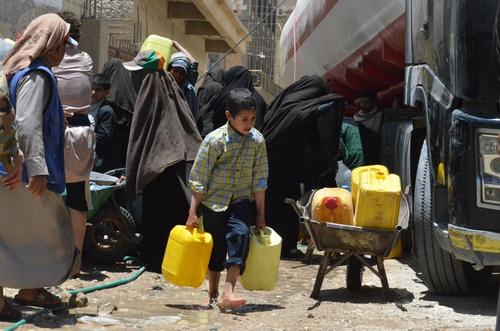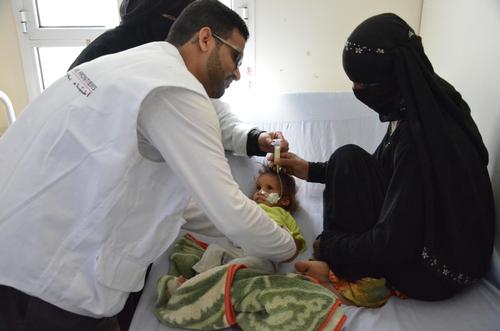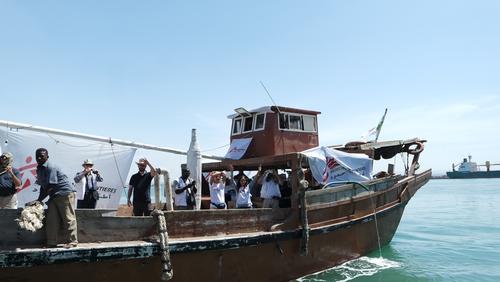In Yemen, MSF works in several Yemeni governorates. MSF has received more than 1,600 war wounded in Aden, Amran, Hajja and Al-Dhale'. The organisation treats patients according to medical ethics and impartiality. MSF has brought into the country more than 100 tons of humanitarian aid to the facilities it is running and supporting in Yemen. Below is a summary for MSF activities in Yemen.
Aden: MSF is running independently an Emergency Surgical Hospital- within Al-Sadaqa Hospital compound in Sheikh Othman district - and has been supporting Crater Health Center with medication and fuel for the power generator. Since March 19th, MSF has received more than 1,000 injured in Aden. The hospital includes sections of emergency, operating theatre, inpatient department, physiotherapy, psychotherapy, x-ray, laboratory and pharmacy. Soon, MSF will start outpatient surgical mobile clinics starting to provide outpatient care to surgical patients who cannot access MSF hospital for outpatient medical care.
Amran: Since last week, MSF started providing general consultations in mobile clinics for IDPs who fled their homes from several Yemeni areas. More than 320 general consultations were provided and the activity is still ongoing. In addition, MSF has provided support in several IDPs locations. The support included providing water tanks, water supplies, non-food items and hygiene kits for more than 500 IDP families located in 12 locations in Khamer. The IDP support activities also included health promotion among IDPs and cleaning the sewage system in the Central Market of Khamer.

MSF is actively supporting lifesaving and healthcare services to the patients in 12 departments of the MoH Al-Salam Hospital in the sections of emergency room, intensive care unit, surgical operations, pediatrics and in-patient therapeutic center, hospitalization, neonatal unit, delivery room, antenatal care, blood bank, laboratory, vaccination and the dressing room. MSF is also supporting Huth Health Center with medications, oxygen, logistic equipment, human resource support, electricity and referral system.
Hajja: MSF is supporting IDPs with water, non-food items distributions and general medical consultations in the Health Center of Bani Hashim district. MSF also provided emergency and life-saving services for injured in Haradh Hospital.
Al-Dhale’: MSF is still providing life-saving healthcare services in MoH Al-Nasser Hospital in Al-Dhale. The support includes emergency room (24/7), surgery, post-operative care, sterilization, laboratory, infection control, health care waste management and referrals.

In addition, MSF is supporting Al-Azarik Health Center in the emergency room, ante-natal care, post-natal care, family planning, normal deliveries, EPI, nutrition and referrals to Al-Nasser Hospital. In Qataba, MSF supports the emergency room (24/7), observation room, laboratory and health care waste management in MOH Al-Salam Hospital. MSF is also supporting several health centers and Jaffea and Al-Habilain Hospitals with medical supplies and equipment in the governorate.
Sa'ada: MSF is supporting the ER, OT and maternity departments of Al Jumhuri hospital in Sa'ada town with an international and national medical team. MSF is also supporting Haidan Health Center with a doctor, referral system and medications and is planning further support for the facility.
Taiz: MSF has provided material support, emergency medications and surgical supplies to Al-Jumhori and Al-Rawdah hospitals that have received people affected by violence in the recent and ongoing conflict. An MSF team is on the ground assessing further support required.
Sana'a: MSF has been providing urgent support during emergencies to local hospitals through MoH. Following the blast in Noqum Mountain on May 11th,MSF provided emergency materials and medications to Al-Thawra and Al-Jumhori Hospitals. MSF has similarly responded to several emergencies in Sana'a since the beginning of 2015.



